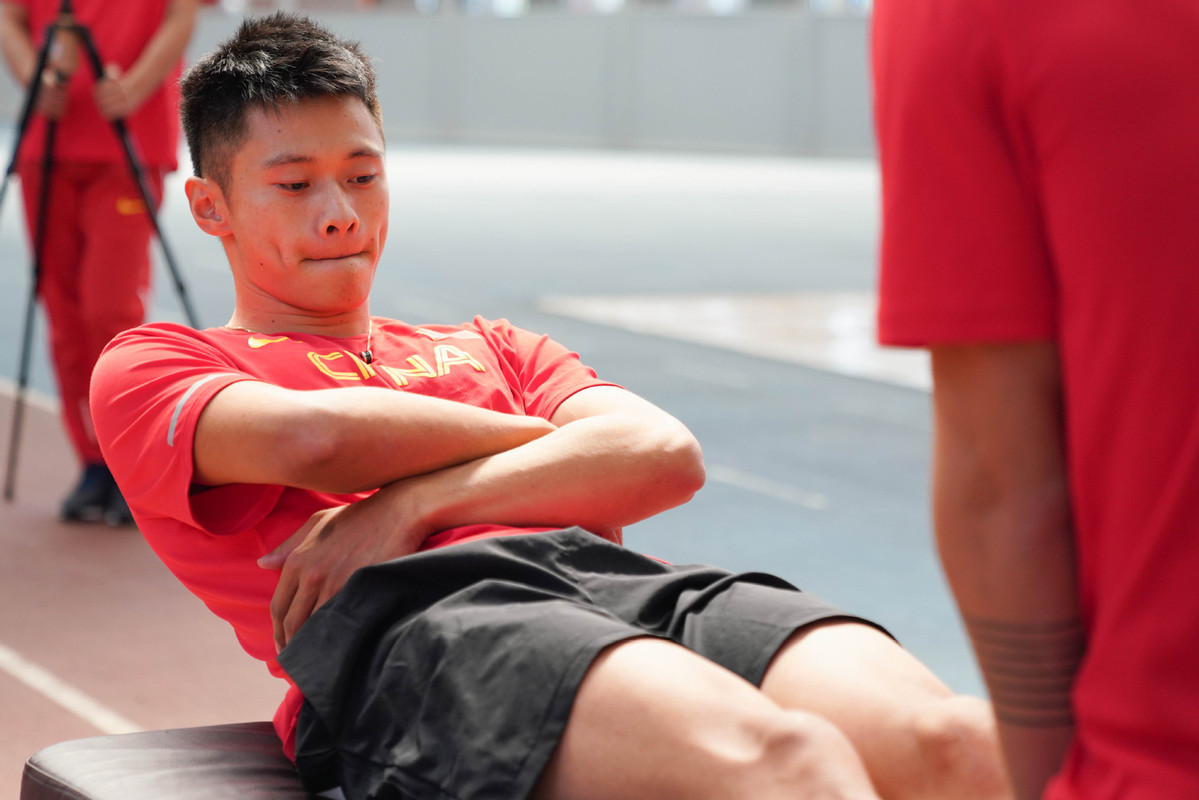China right on track for Tokyo glory
 0 Comment(s)
0 Comment(s) Print
Print E-mail China Daily, December 4, 2020
E-mail China Daily, December 4, 2020

The year 2020 has presented unprecedented challenges for Chinese athletics. Due to the COVID-19 pandemic, nearly all professional and public events were postponed or canceled in the first half of the year, while the training plans of the country's elite athletes were disrupted by the postponement of the Tokyo Olympics.
However, fighting against all odds, the Chinese Athletics Association has provided its national teams with a safe environment to continue their preparations for the Olympics, and even stage competitions in the absence of global events.
At a CAA meeting on Wednesday in Xiamen, Fujian province, it was revealed that 114 athletes that were training or competing abroad returned to China earlier this year in the interests of their safety. They had been based in six countries, spread across 13 different cities.
With the global athletics calendar decimated by the pandemic, the CAA staged events behind closed doors for its national teams, often innovating with online elements. Now with the epidemic under control in China, offline events are gradually returning.
By mid-November, four national and 33 provincial-level athletics competitions had been staged in China in 2020. In addition, four events were staged in the downtown areas of major cities, attracting a total of 3,892 participants.
"We had to make changes to adapt to the new normal," said Tian Xiaojun, a CAA vice-president. "Based on the specific requirements of different sports, we hosted different competitions for the national teams at their training bases. We also hosted online events to create more opportunities for them to test their skills.
"Staging offline events brought a lot of pressure, but the local authorities of many provinces and cities supported and helped us to stage some great events. And our athletes have produced some good results."
With the Tokyo Games just around the corner, the CAA's efforts have been invaluable for athletes' Olympic preparations, and plenty of performances bode well for next summer.
World champion shot putter Gong Lijiao threw a world-leading indoor mark of 19.70 meters at an event at Beijing Sports University in March, while sprinter Xie Zhenye clocked 10.13 seconds over 100 meters and 20.80 over 200 to claim golds at a Shanghai event in August. Wang Jianan's 8.36-meter leap at the National Athletics Championships in Shaoxing, Zhejiang province, in September, remains the world's best mark in the men's long jump this year.
"It's our top athletes' passion and love of sports that keeps them going and training even during such challenging times," Tian said.
"Also credit must goes to our logistical capabilities to provide our athletes with a safe environment. The national and provincial teams created 'bubbles' for athletes to help them to train and host all sorts of competitions.
"Now all national teams are about to start their final winter-training stints at 13 bases across China in the buildup to the Tokyo Olympics. The priority is to level up their body strength and refine their skills. This will be a vital period of time.
"We still have the same ambition for the Tokyo Olympics. All our athletes will be ready."
Last weekend's 2020 Nanjing Marathon and National Marathon Championships generated more positivity among the national-team ranks. Serving as an Olympic qualifying race, the event boasted 10,000 runners, including 12 members of Team China.
The top four finishers in both the men's and women's races all achieved the Olympic qualifying standard (2:11:30 and 2:29:30 respectively). Men's winner Peng Jianhua refreshed the event record by clocking 2:08:50, while women's champion Li Dan ran a personal best of 2:26:59.
"That was a really surprising result, I never thought I could run this fast," said Peng."The postponement of the Olympics gave me more time to adjust and more chance to compete ahead of the Games. I hope I can mature more by next summer. I'm confident in myself to make more breakthroughs."
Currently, a total of five men and ten women have achieved the Olympics' marathon qualifying standard for Team China. A March qualifying event will decide the final lineup (three athletes each for men's and women's teams) to race in Tokyo.
Shui Tao, a deputy secretary-general of the CAA, believes the Nanjing Marathon results are reward for the joint efforts of the entire Chinese athletics community this year.
"There's still a gap between us the world's marathon powerhouses, so the postponement of the Tokyo Games gave us more time to find and fix our problems through better training and management," said Shui.
"Marathon primarily tests endurance, but it also requires teamwork and a team atmosphere. The Nanjing Marathon tested our training over the past half year, which proved to be effective."






Go to Forum >>0 Comment(s)